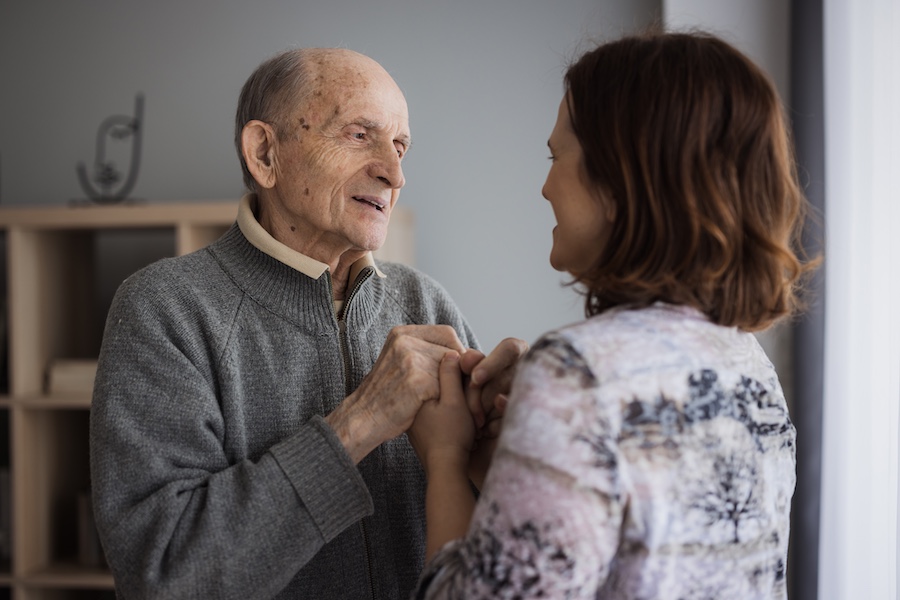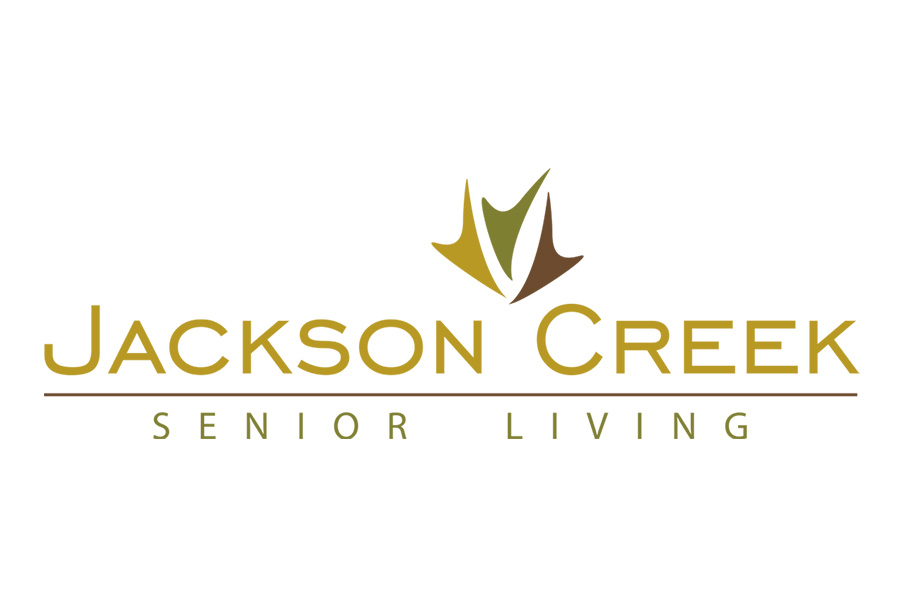
At Jackson Creek Senior Living, family visits often increase as the holidays approach. For those visiting a loved one in our Creekside memory support neighborhood, the experience can be deeply meaningful—but it may also bring emotional challenges, as dementia can affect memory, temperament and communication patterns.
Understanding Dementia
Alzheimer’s disease and related dementias are progressive conditions in which toxic proteins build up in areas of the brain, beginning in regions responsible for forming new memories. Over time, this buildup affects comprehension, language and mood, making everyday communication more difficult.
Visiting a parent or spouse living in memory support can be both rewarding and emotional. Because your loved one may have less control over how they behave or react, it helps to prepare. Here are some ways to make your visit more comfortable and positive for both you and your loved one.
Tips for a Positive Visit
- Choose the best time of day. Many people living with dementia are calmer and more alert in the morning or early afternoon, especially if they experience Sundowning Syndrome. At Jackson Creek Senior Living, families are welcome to visit their loved ones 24/7 and whenever it works best for them.
- Bring familiar items. Photos, small mementos and music can spark comfort and conversation. Consider creating a short playlist of music to enjoy together. McGill University neuroscientist and musician Daniel Levitin says music is usually associated with time and place and can help relax and reduce anxiety.
- Keep expectations realistic. Your presence alone can make for a good visit. You don’t need to stay long or fill the time with conversation. Simply being together can bring peace and reassurance.
- Approach gently. Smile, make eye contact and move slowly so your loved one feels safe and not startled.
- Speak simply and calmly. Use short sentences, allow time for responses and avoid correcting or challenging what your loved one says.
- Follow their lead. Let your loved one guide the pace. If they seem restless, try changing locations, perhaps a short walk to the garden, a stop by the gazebo or a quiet moment in the sensory room.
- Focus on feelings, not facts. If dad or mom says they want to “go home,” gently redirect the conversation with warmth and reassurance. Emotional comfort is far more important than correcting someone living with memory loss.
Meaningful Activities to Share
During your visit, simple activities often work best, such as doing a puzzle, looking through a photo album, sharing a snack or listening to music. A photo hanging in your loved one’s apartment may spark a positive memory or conversation, too. Sensory experiences, like smelling flowers or feeling soft fabrics, can be especially soothing. Weather permitting, families also enjoy visiting the outdoor spaces at Jackson Creek Senior Living, where natural surroundings and bird watching inspire relaxed conversation and connection.
Helpful Conversation Starters
Depending on the stage of dementia, conversation may not always be possible. When it is, it’s important to remember to focus on open-ended or observational comments rather than memory-testing questions.
For example
- Instead of “where did you get that sweater?” try “that sweater is such a beautiful color.”
- Instead of “who is that in the photo?” try “he looks so happy in that picture.”
Reassuring statements like “I’m happy to visit with you today” or “I love spending time with you” can help your loved one feel grounded and cared for. If your loved one is expressing discomfort or angst, acknowledge their feelings by saying, “I understand, that must be hard,” and try to gently redirect.
Bring Comforting Touches
When you visit a loved one in memory support, consider bringing along small comfort items, like lotion, a soft blanket, essential oils, or photos that evoke warmth. If your loved one enjoyed animals or hobbies, bring along pictures or tokens related to those memories that will help them reminisce. Printed photos or larger screens, like a tablet or laptop, are often easier for older adults to see than smartphones.
The Heart of Connection
Ultimately, don’t worry about “finishing” an activity or maintaining a conversation. What matters most is the shared moment. Even five minutes spent folding napkins together, humming along to a familiar tune, or simply holding hands can bring joy and comfort.
Planning a visit to Jackson Creek Senior Living? Our team is here to help you make the most of your time with your loved one in Creekside’s memory support neighborhood. Call 719-259-1331or visit us online to learn more about how we support seniors living with Alzheimer’s and related dementia.



